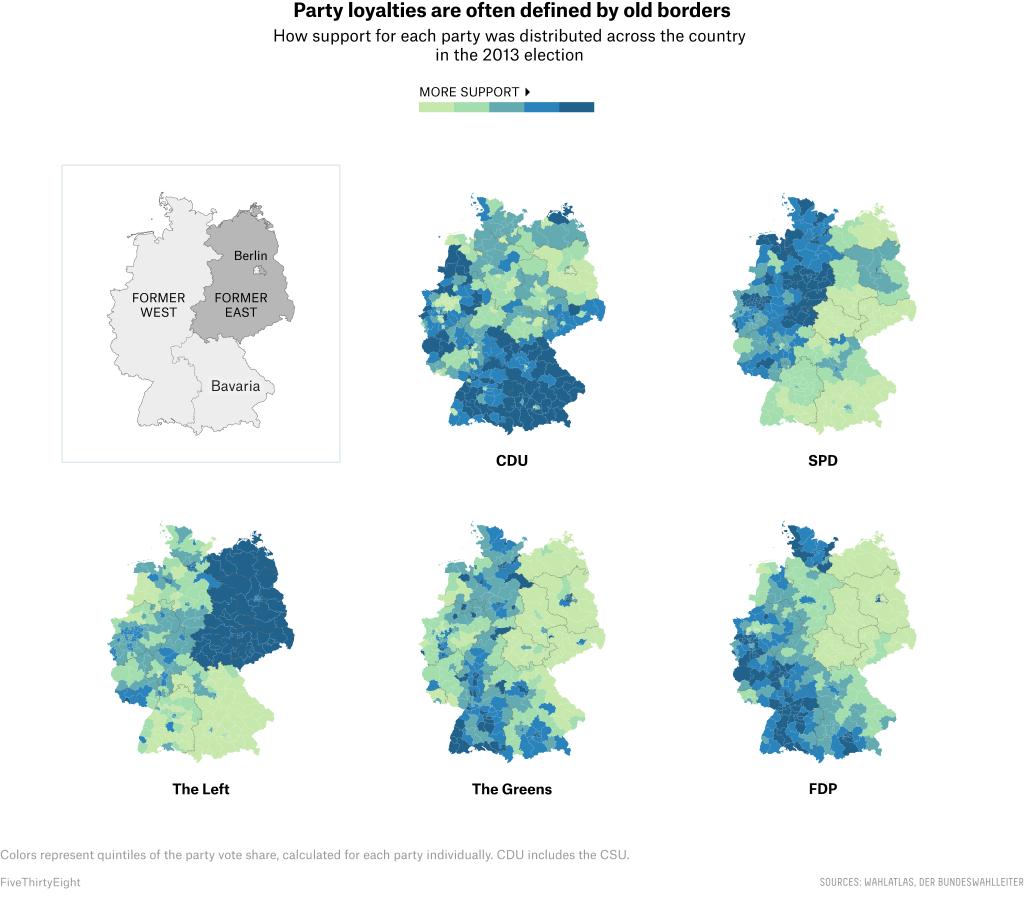The Upcoming German Election: A Defining Moment

Table of Contents
Key Contenders and Their Platforms
The German political landscape is diverse, with several parties vying for power in the upcoming election. The leading contenders typically include the CDU/CSU (Christian Democratic Union/Christian Social Union), SPD (Social Democratic Party), Bündnis 90/Die Grünen (Greens), FDP (Free Democratic Party), and AfD (Alternative for Germany). Each party offers a distinct platform, reflecting varying approaches to Germany's most pressing challenges.
-
CDU/CSU: Generally center-right, focusing on fiscal conservatism, a strong European Union, and a measured approach to immigration. Their economic policies often emphasize business-friendly regulations and controlled government spending.
-
SPD: Center-left, advocating for social justice, stronger social welfare programs, and increased investment in public services. They generally support a more interventionist economic policy and a proactive approach to climate change.
-
Greens: A left-leaning party prioritizing environmental protection, renewable energy, and social justice. Their policies often include ambitious climate targets, significant investment in green technologies, and social reforms.
-
FDP: Center-right, emphasizing economic liberalism, free markets, and limited government intervention. They typically support tax cuts, deregulation, and balanced budgets.
-
AfD: A right-wing populist party with a nationalist agenda. Their policies often focus on restricting immigration, opposing the European Union, and questioning Germany's commitment to international cooperation.
Here's a summary of key policy positions:
-
Economic Policy: The parties differ significantly on taxation, social welfare spending, and investment in infrastructure. CDU/CSU generally favors lower taxes and reduced government spending, while SPD and Greens advocate for higher taxes on corporations and wealthy individuals to fund social programs and green initiatives.
-
Climate Change and Environmental Policy: The Greens have the most ambitious climate goals, advocating for a rapid transition to renewable energy and significant emission reductions. Other parties support climate action, but their approaches vary in terms of speed and scale.
-
Foreign Policy: While most major parties support Germany's membership in the EU and NATO, they hold differing views on the extent of European integration and the country's role in international affairs.
-
Immigration and Integration Policies: The parties' stances on immigration range from the relatively welcoming approach of the Greens and SPD to more restrictive policies favored by the CDU/CSU and AfD.
You can find the detailed manifestos of each party on their respective websites for further reading.
Major Issues Shaping the Election
Several critical issues are shaping the narrative of the German Election and influencing voter decisions.
The Economy and its Challenges
Germany's economy faces significant challenges including rising inflation, supply chain disruptions exacerbated by the war in Ukraine, and the energy crisis. Parties are offering varied solutions: some emphasize fiscal responsibility and business-friendly policies, while others propose increased government intervention and social safety nets. The debate centers on finding a balance between economic growth and social protection in these turbulent times.
Climate Change and the Green Transition
Germany's commitment to reducing greenhouse gas emissions and transitioning to renewable energy is a central theme of the election. While all major parties acknowledge the urgency of climate action, their approaches differ significantly in terms of the speed and scale of the transition. Debates revolve around the potential economic impact of green policies, the role of nuclear energy, and the best strategies for achieving climate neutrality.
Immigration and Integration
Immigration and the integration of refugees remain highly debated topics. The parties' approaches vary significantly, with some advocating for stricter border controls and tighter immigration policies, while others champion a more welcoming approach and greater investment in integration programs. Finding a balanced solution that addresses both security concerns and humanitarian needs is a key challenge.
Foreign Policy and Europe
Germany's role within the European Union and its foreign policy priorities are crucial considerations. The war in Ukraine has highlighted the importance of transatlantic relations and the EU's collective security. The parties differ in their approaches to resolving the conflict, strengthening EU institutions, and managing relations with other global powers.
Predicting the Outcome and its Implications
Predicting the outcome of the German election with certainty is difficult, as pre-election polls can fluctuate. However, analyzing these polls and considering potential coalition scenarios is crucial to understanding the possible implications. A close race is anticipated, with several scenarios possible, depending on the final vote distribution. The formation of a coalition government is likely, and the composition of this coalition will significantly determine the policy direction of the next government.
The election's outcome will impact:
-
The European Union: Germany's role in shaping the EU's agenda and its influence on European policies will be significantly affected by the election results.
-
The Global Economy: Germany's economic policies and its position on international trade and cooperation will have implications for global economic stability and growth.
-
Germany's Domestic Policies: The winning coalition's priorities will shape domestic policies on issues like healthcare, education, and social welfare for years to come.
Conclusion:
The upcoming German election is a defining moment that will shape Germany's trajectory for years to come. The choices made by German voters will have a profound impact, not only domestically but also on the wider European and global landscape. Understanding the key issues, the platforms of the leading parties, and the potential outcomes is crucial. Stay informed about the German Election by following reputable news sources and engaging in informed discussions. Don't miss this crucial event that will define Germany's future and its role in the world. Learn more about the candidates and their policies to make your voice heard in this vital German Election. Your participation in understanding and engaging with the German election process is critical for a successful democratic outcome.

Featured Posts
-
 Haiti Economie Analyse Du Projet De Loi Bipartisan Help Extension Act
May 14, 2025
Haiti Economie Analyse Du Projet De Loi Bipartisan Help Extension Act
May 14, 2025 -
 Separation Familiale Sous Oqtf Le Cas Des Deux Collegiens Et Leur Mere
May 14, 2025
Separation Familiale Sous Oqtf Le Cas Des Deux Collegiens Et Leur Mere
May 14, 2025 -
 A Tommy Boy Sequel With David Spade Heres The Scoop
May 14, 2025
A Tommy Boy Sequel With David Spade Heres The Scoop
May 14, 2025 -
 A Luxurious Chocolate Experience Lindt Opens In Central London
May 14, 2025
A Luxurious Chocolate Experience Lindt Opens In Central London
May 14, 2025 -
 May 2025 Pokemon Go Events Raid Battles Spotlight Hours And Community Day Schedule
May 14, 2025
May 2025 Pokemon Go Events Raid Battles Spotlight Hours And Community Day Schedule
May 14, 2025
